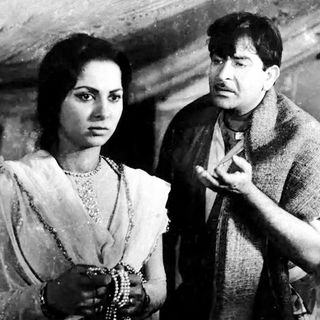
Family Karma Is a Fun Skim Through the Conflicted Lives of the Privileged Indian Diaspora
The show makes one wonder how, and for whom, we package Indian representation on T.V.

Diaspora cultures crave representation partially to avoid seeing themselves as stereotypes and caricatures, concocted by writers who have no insight into their cultures. For the Indian diaspora in the U.S., more Indian stars, writers, and directors mean less Apus (The Simpsons) and Raj Koothrapallis (The Big Bang Theory). Yet, as diverse, fleshed-out representation grows in American T.V., cringe-inducing stereotypes merely take on new forms rather than waning. Privileged diaspora creators use their ‘exotic’ cultures to make their staid plots stand out, even though none of these creators have any deep engagement with what they’re portraying. This gives us self-centered, wildly inaccurate portrayals of Indian, and even diaspora culture, in The Mindy Project, Master of None, Lily Singh’s ‘Superwoman’ persona, andNever Have I Ever.
Bravo’s Family Karma, a reality T.V. show based on the lives of an Indian-American community in Florida, does not take itself too seriously. This is a relief, because the show focuses on multiple privileged Indian-Americans, as compared to a singular protagonist and how they view the world. From aunties to daughters to sons to fathers, the character’s perspectives are a vivid and unique look into how the stereotypically ‘strict’ Indian culture restrains and relents. Even a quintessentially Indian cultural trait, like nagging your daughter to give you grandchildren, is given multiple perspectives. A divorced single dad encouraging his daughter to date for the grandchildren receives the same bandwidth as a more funny family lovingly threatening their daughter with “grey pubic hair” if she doesn’t find a man.
Family Karma is actually a pretty great study on how representation should work, as its large set of characters also reveal the cracks in an idyllic, mostly progressive community. From a group of men who want to “settle down with a good Indian girl,” to an auntie who disparages her daughter’s fiancé for daring to have an acting career, the show lays bare the Indian American community’s constant wrestle between progressiveness and traditional double standards.
Related on The Swaddle:
Mindy Kaling’s ‘Never Have I Ever’ Caricatures Indianness, Glorifies Clichés
However, Family Karma falls prey to an awkward habit that some non-white people feel the need to indulge in – the need to over-explain one’s culture to an assumed white audience. The average American T.V. show wouldn’t feel the need to explain something integral to American culture – like Thanksgiving, or the Superbowl. Similarly, a show mainly catered to an Indian-American audience shouldn’t feel the need to over-explain Diwali, or a pooja. Yet, Family Karma relentlessly offers explainers on everything from the Indian habit of spreading gossip, to marrying families rather than a person, to Indian society’s obsession with image – which is funny, because none of these cultural behaviors are unique to India. Providing a little context to a unique cultural situation is alright – dragging it out points to self-consciousness in one’s culture manifesting as excessive self-awareness. If ex U.S. President Obama can celebrate Diwali at the White House, one can assume the festival of lights does not need an overdrawn explainer.
Plus, the show’s unique position to depict the drama and delights of close-knit Indian-American communities is also overshadowed by its need to depict Indian culture as idyllic — a woman from one household feeds a cameraperson and asks him if she added too much salt, and a grandfather from another household asks a producer if she has children. The characters themselves stick to trope-like depictions of Indian Americans that wouldn’t be out of place in a Karan Johar movie. This includes Monica, the quintessential teetotaller, vegetarian good Indian diaspora girl who doesn’t date, Brian, the playboy who only dates white girls, but now wants to marry a good Indian girl, and Bali, who’s too hot to be an aunty and too old to be around the younger crowd. Either this is an effort to pander to an audience that has historically enjoyed Johar-esque fare, or an attempt to create ‘extra’ characters to suit reality T.V. appetites. Of the two, the former seems more likely, as perhaps, the latter would’ve led to a more vivid, dramatic casting effort.
Yet, it will do us well to remember that Family Karma is still a reality TV show, more intended to trigger gossip and laughter, than a need to examine the awkwardness of how initial attempts at representation play out. In its ability to make us laugh and relate to sweet, almost Bollywood-like plots, Family Karma is a perfectly adequate, non-cloying watch — one that the more pretentious diaspora T.V. show-writing lot might even learn a thing or two from.
Aditi Murti is a culture writer at The Swaddle. Previously, she worked as a freelance journalist focused on gender and cities. Find her on social media @aditimurti.
Related


The Buzz Cut: Britney Spears Says She Burnt Down Her Gym
